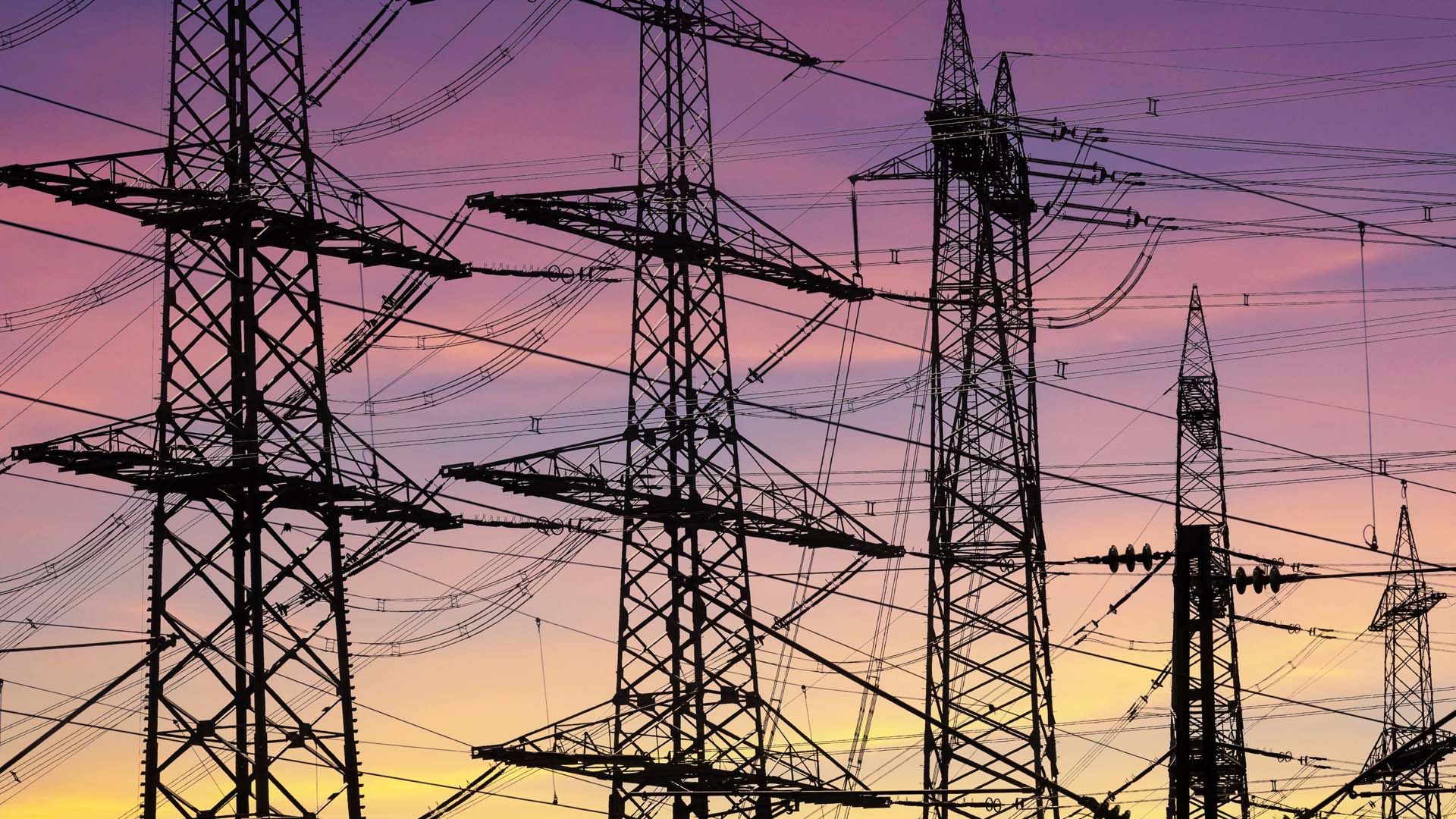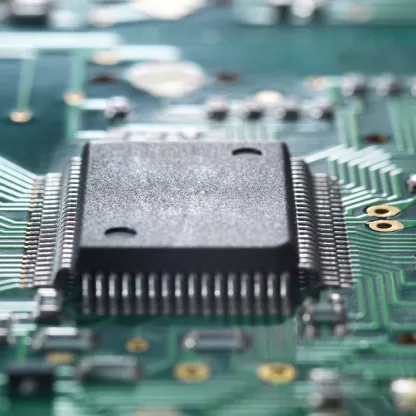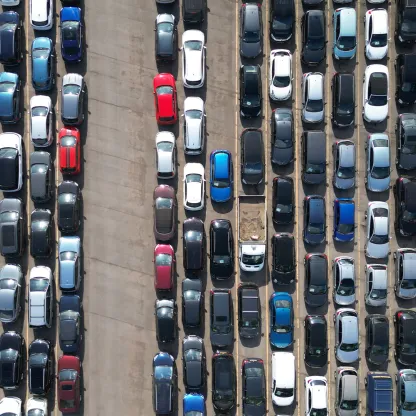A wave of disappointing headlines about our battle against climate change and the move to cleaner energy doesn’t have equity investment specialist Michael Cumberlidge in a funk. He’s looking at the day-to-day improvements delivered by ever-better technology.

Powering efficiency
It’s Monday morning, I’m waking up bleary eyed to my alarm, rather aggressively calling me to the office once more. By the time I’ve left the house I’ve used the coffee machine, looked at my phone 36 times, checked my emails and unplugged my car. We (I) often take for granted the sheer demand for the essence of digital life: electricity.
Power demand the world over continues to climb, spurred on by insatiable global appetite for AI, digitisation and electrification. In the 10 years to 2023, the proportion of people with access to electricity increased by 8.5 percentage points, an eye-watering increase of 1.5 billion.
As the world faces the persistent threat of climate change, how and where we generate our energy has become a focal point for companies and governments alike. The supply of clean, renewable energy has grown significantly over the last 10 years and yet demand far outstrips supply. This begs the question: how will we power our world economy in the next 10 years?
It's a gas
Natural gas in its traditional form, and its cooled (-162 degrees Celsius) state cousin liquified natural gas, have emerged as popular alternatives to traditional carbon-heavy fuels such as coal and oil. Producing half the emissions of coal for the same amount of energy and roughly 30% of oil, natural gas offers efficient and abundant energy for households and companies alike. And research and investment continue to make it more efficient, reducing the emissions that it does release for the energy it provides.
A key beneficiary of this move from oil and coal to gas is industrial gas supplier Linde, held in our Rathbone Greenbank Global Sustainability and Rathbone Global Opportunities funds. Linde sells all sorts of industrial gasses, as well as the equipment and expertise to transfer it to where it’s needed. It’s the dominant player in gas markets, including hydrogen. Through its products and services, Linde saved an impressive 91 million tonnes of CO2 emissions in 2023. To put that number into perspective, that’s equivalent to the emissions released to power 19 million homes’ electricity use for a year or charge 7.4 TRILLION smartphones (took me a while to count the zeros on that stat).
The cost of energy varies dramatically across different nations and fuels, driven by the structure of their individual power systems. UK energy costs are among the highest in developed markets, directly affecting corporate profitability. This is, in part, because we import a significant portion of our energy, around 40% in 2023, and because we’re investing heavily in clean energy. Fortunately, there are global innovators tackling these issues head on.
Take Swiss specialist turbocharger business Accelleron, which we own in the Rathbone Greenbank Global Sustainability fund. Accelleron manufactures and fits turbochargers for the energy and shipping industries. These components increase engine ouput by up to 300% and Accelleron’s products have roughly 25% higher power density than their closest peers. This isn’t just a cost efficiency story; the sustainability credentials of its products are a stark reminder of the importance of innovation and efficiency gains:
- 10% reduction in CO2 emissions
- 60% reduction in Nitrogen Oxide emissions (N2O is around 300 times worse than CO2 for heating the atmosphere)
- 1% reduction in maritime fuel use equates to $2bn in cost reductions and taking 2 million cars off the road
Opening up the newspaper (or app) to see another negative strapline on climate change and the aggressive quashing of renewable energy projects can often be a depressing start to the day. Yet don’t forget the daily toil and incremental improvements of people and companies out there making a tangible difference. It’s enough to put a small skip in my step – hopefully not enough to annoy those sharing my carriage to the office.









